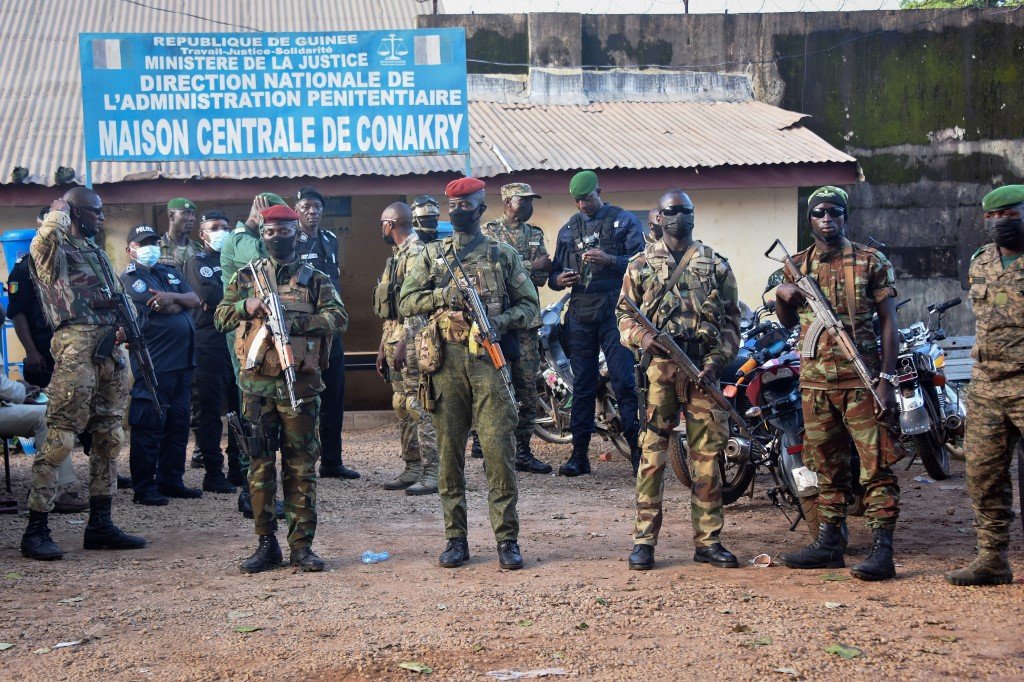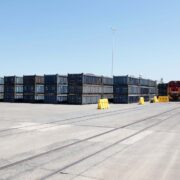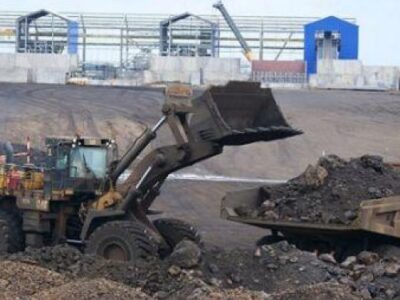
A military coup in Guinea that ousted the country’s president has sent shockwaves through global bauxite markets and ended the country’s period of political stability, analysts say.
The coup leaders placed President Alpha Condé under house arrest and removed all public officials from office, alleging economic mismanagement, corruption and human rights violations.
The coup’s leader, Mamady Doumbouya, a former officer in the French Foreign Legion, has promised a transitional government of national unity and a “new era for governance and economic development”.
In the immediate aftermath of the coup, land and air borders closed, raising fears of disruptions to the global supply of bauxite, the main ore source of aluminium, for which Guinea supplies 20% of the global market.
But the new transitional government, led by military junta the National Committee for Reorientation and Development, (CNRD) moved swiftly to reopen sea borders and ports, ensuring bulk mineral exports continued, and encouraged miners to resume operations.
This helped offset the risk of supply disruptions, says Eric Humphery-Smith, Africa analyst at risk intelligence company Verisk Maplecroft.
“However, poor communication by the new authority spooked the market: aluminium future prices have increased over 1% since Sunday, highlighting the importance of Guinea’s bauxite supply to global markets,” he said. Prices spiked to their highest level in a decade on the London Mineral Exchange on the day after the coup.
Outlook for Simandou
The political upheaval could cause delays to Guinea’s biggest iron-ore mining project, Simandou, he adds.
The largest-known deposit of its kind, containing more than 2 billion tonnes of high-grade ore used to make steel, has remained largely untapped due to political wrangling and disputes over its ownership. The project’s future appeared brighter in 2020 after the China-backed and SMB-Winning consortium signed a deal to develop the site.
Following the coup, the project, which has faced decades of delays, could face further setbacks. The deadline set by SMB-Winning to bring blocks 1 and 2 of Simandou into production by 2025 is likely to slip, Humphery-Smith says.
Timeline of the two Simandou projects, 2010-2030
 Credit: Verisk Maplecroft
Credit: Verisk Maplecroft
Mining policy
As the world’s second-biggest bauxite producer, Guinea supplies 20% of the world’s bauxite, mainly to Russia and China. The ore accounts for around 35% of the West African nation’s GDP, estimated at $26.5bn in 2020.
Doumbouya, the leader of the new transitional government, has historically supported the development of an infrastructure project key to the development of the Simandou mine – the trans-Guinean railway – as a means to export iron ore from the mountainous area in southern Guinea.
“But there is no guarantee that a government of national unity will not make additional stipulations. A review of the mining fiscal framework cannot be discounted, as Guinea’s 2011 Mining Code remains among the most competitive in the region,” Humphery-Smith says.
China’s investments
The coup stoked fears of disruptions to China’s aluminium supply-chain, with Beijing importing almost half (47%) of its bauxite from Guinea last year, helping to cement its position as a global leader in aluminum output.
Chinese companies are also heavily invested in the country’s mining sector. Any supply disruptions would likely cause China to turn to Australia for bauxite and eventually iron ore, something that policymakers in Beijing are keen to avoid, says Eric Olander, co-founder and managing editor of the China Africa project.
“At this point, there’s been no discernible impact from the coup on China’s mining investments as all of the major mining companies are reporting that operations are proceeding as usual.”
Beijing’s relations with Australia frayed in 2018 when it became the first country to publicly ban China’s Huawei from its 5G network. Since then a trade war has rumbled featuring tit-for-tat tariffs after Canberra called for an enquiry into the origins of the coronavirus.
Regional trend
Military takeovers are on the rise in West Africa, with the coup representing the third military takeover in West Africa in the last year, after recent coups in Mali and Chad.
Condé’s ousting also sends a clear signal to a generation of political leaders within Francophone Africa and beyond who seek to extend their rule through constitutional changes, says Humphery-Smith. Alpha Condé had been controversially sworn in for a third term that opponents described as unconstitutional.
“We expect these events to embolden military officers in countries such as Côte d’Ivoire, Senegal, Cameroon, Togo and Gabon, where governments have staved off major opposition movements, coup attempts and army mutinies in recent years.”
Chorus of condemnation
West African heads of state from the Economic Community of West African States (ECOWAS) suspended Guinea’s memberships form the regional bloc on September 8, calling for a return to the constitutional order in Guinea.
The 15 member bloc also demanded the release of Alpha Condé and agreed to send a high-level delegation, due in Conakry on Thursday.
On Sunday, the chorus of condemnation was joined by President of the Democratic Republic of Congo, Félix Tshisekedi, and Ghanaian head of state President Nana Akufo-Addo, who demanded Condé’s immediate release and “a return to constitutional order under penalty of sanctions”.
Washington, Brussels and Paris have also condemned the coup, with France joining the call for “the immediate and unconditional release of President Condé”.
Former US special envoy to the Sahel, J. Peter Pham, said “Whatever the justification given, an extra-constitutional regime change is always destabilising for a country, and bad for the economy”.









Comments